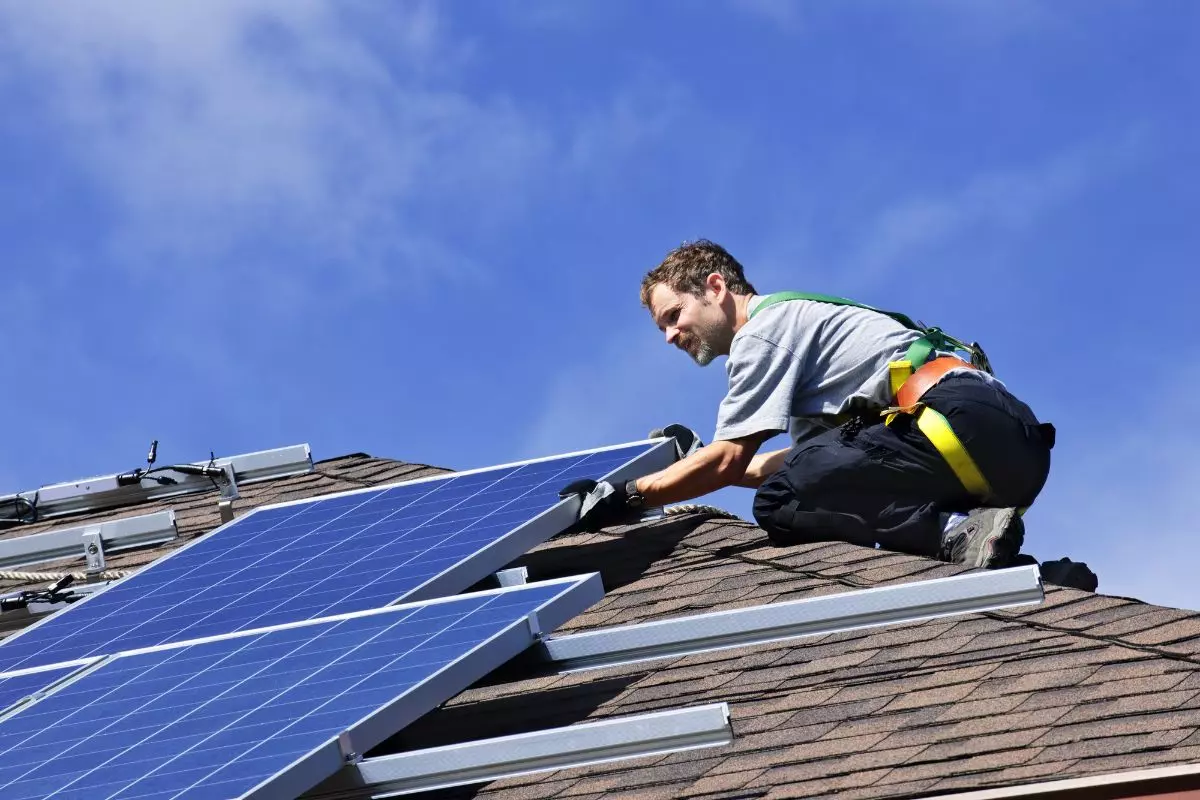Solar-powered air conditioners are a game-changer when it comes to cooling your home. Not only do they make perfect sense for the environment, but they can also save you money on utility bills. In this article, we'll dive into the benefits of solar-powered air conditioning, how they work, and the potential savings you can expect. So, let's get started!
The benefits of solar-powered air conditioning
Did you know that air conditioners in American homes produce a staggering 117 million metric tons of carbon dioxide annually? This greenhouse gas contributes to global warming and poses serious environmental and health risks. With solar-powered air conditioners, you can significantly reduce your carbon footprint and help combat climate change.
Moreover, air conditioners account for 6% of the energy consumed in the US, with Americans collectively spending $29 billion on AC-related electricity every year. By switching to solar-powered ACs, you can slash your utility bills and take control of your energy usage. Plus, during rolling blackouts, when the power company limits grid usage, you won't have to worry about being left without your beloved cool air.
How does a solar air conditioner work?
In simple terms, solar ACs utilize solar panels to power the air conditioning system. These panels collect energy from the sun and convert it into power. This power either gets directly sent to the AC or stored in a battery for later use.
Most solar AC systems are hybrid, meaning they can also draw power from traditional sources when sunlight is not available, such as during nighttime. Hybrid systems are ideal for hot environments where running the AC throughout the day and night is essential for comfort. However, for those looking for a completely off-the-grid solution, there are solar-only systems that are incredibly energy-efficient but lack the flexibility of hybrid models.
 Installing solar AC panels
Installing solar AC panels
Solar-powered central air vs. mini splits
While solar-powered central air conditioners do exist, the majority of solar ACs are mini splits. The main difference between the two lies in their ductwork requirements.
Traditional central ACs rely on ductwork to distribute cool air throughout the house. On the other hand, mini splits consist of an outdoor compressor and individual indoor evaporators that cool specific zones. This makes them more energy-efficient, affordable, and easier to install compared to central air conditioners. Mini splits are gaining popularity, especially in the US, as they offer a cost-effective and flexible cooling solution.
How many solar panels do you need to run an air conditioner?
The number of solar panels required to power your AC depends on the system you choose and your usage. Most mini splits consume around 500-700 watts per hour per evaporator zone, while residential solar panels generate between 250-400 watts per hour. This means you'll typically need at least two solar panels for your solar air conditioner.
For central air conditioning, the capacity is measured in tonnage. As a general rule, you'll need 1 ton of cooling power for every 600 square feet. So, for a 2,000-square-foot home, a 3.5-ton AC would be recommended. In terms of solar paneling, it's advisable to have 1,200 watts per ton. Therefore, a 2,000-square-foot home would require around 11-17 solar panels.
Solar-powered mini split

Solar-powered central air conditioner

How effective is solar air conditioning?
Solar air conditioners are just as effective as their traditional counterparts when it comes to cooling your home. Hybrid systems automatically switch to electricity when the solar battery drains, ensuring uninterrupted comfort even on cloudy days or during the night. However, it's worth noting that some solar-only ACs may have reduced output without direct sunlight.
Solar air conditioner savings
Although solar air conditioners may have a higher upfront cost compared to traditional cooling systems, the long-term savings on energy bills make them a worthwhile investment. On average, a solar AC pays for itself within 10 years of purchase.
According to Angi, the average cost of a solar air conditioner ranges from $1,600 to $13,000. Installation costs typically range from $1,500 to $3,500. In comparison, a traditional air conditioner costs around $5,650, with installation fees between $500 and $2,500. Ductless mini splits have an average cost of $3,400 to $4,800, with installation fees of $300 to $1,500.
By switching to a solar-powered air conditioner, you can cut your energy bills by around 40%. The average US homeowner spends $115 per month on electricity, so you could potentially save approximately $46 each month with a solar-powered system.
Solar savings programs
Aside from the monthly utility savings, there are various local and federal incentives available for solar energy users. For example, the Federal Solar Investment program offers a 22% tax credit for solar ACs purchased in 2022. The Energy Star program also provides rebates for energy-efficient HVAC equipment.
Best solar-powered ACs
While many well-known HVAC brands have yet to venture into solar-powered products, Lennox's SunSource line leads the way with its advanced technology and reputation for excellence. Another noteworthy brand is HotSpot Energy, which offers solar-powered HVAC systems and holds an A+ rating from the Better Business Bureau.
Brands like Carisol and GREE also manufacture solar ACs, although their presence in the US market is currently limited. Before making a purchase, it's essential to consider the level of installation and repair support these brands offer to US customers.
Still contemplating a solar-powered air conditioner? Connect with one of our HVAC experts to explore the best deals available in your area.
Now that you're equipped with all the information about solar-powered air conditioners, you can make an informed decision and take a step towards a more environmentally friendly and cost-effective cooling solution for your home. Stay cool and enjoy the benefits of solar energy!









